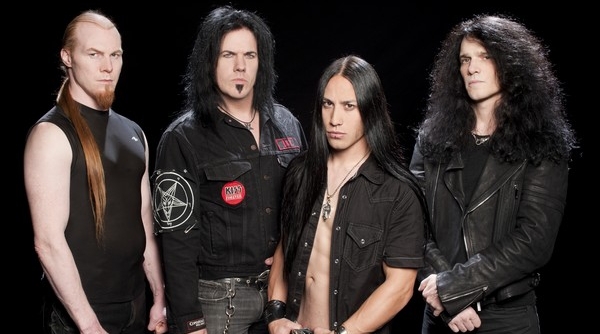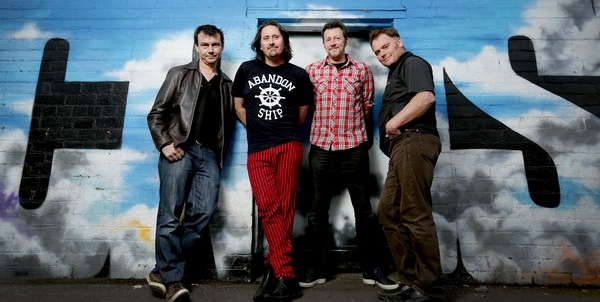Covenant was the very first death metal album to be released by a major label, selling over 130,000 copies in the United States alone and breaking the door down for heavier genres – and also achieving the rare feat of packing a major label album full of occult and satanic lyrics (and without the sense of theatre that accompanies bands like Ghost BC). To celebrate the 20th anniversary of this landmark album last year, Morbid Angel hit the road for a few months to play Covenant from start to finish, followed by a selection of classic cuts. And now they’re bringing the show to Australia, playing a handful of dates in April.
“Word got around about the Covenant shows,” explains bassist/vocalist David Vincent. “And we’d been getting lots of calls to do that same thing around the globe. So it’s a good excuse to come down and visit with you guys for a while.” Vincent notes that the album seems to have weathered the years quite well.
“It feels good to play it,” he says. “Thankfully I’m in a band with some very good musicians, so it sounds good and feels good. And even more importantly the reaction we’ve been getting from fans has been wonderful. It’s always good when a plan comes together.”
So where does Vincent see the album’s legacy? Did the band realise 20 years ago that they were recording something that nobody else could, for want of a better word, ‘beat’?
“Well I don’t know about ‘beat’,” he says. “We never thought of it as a competition. We always did what we wanted to do and we weren’t looking at what other people were doing to set a course for what we were going to do. We always looked inward for inspiration. I’m thankful for that. Probably at the time we were all very determined and we were confident in what we were doing but I don’t know that we knew that it would do what it ended up doing. But again, I’m thankful for it.”
So what was it like to be the first death metal band on a major? “Well opportunities like that are hard to come by. There are a lot of great musicians out there and we just happened to be a part of a really good scene and there were a lot of label folks behind us.”
Vincent’s bass of choice is a Dean signature line of instruments – the same brand favoured by Pantera’s Dimebag Darrell, Megadeth’s Dave Mustaine and Arch Enemy’s Michael Amott.
“It’s really cool. I’m really happy with it. I love the instrument. It was not something that was in the line that I just said, ‘Oh I’ll take this one.’ I was very hands-on in developing it with their head luthier. They were only ever going to make a couple of one-offs for me but when the president of the company saw the finished thing he said, ‘Man, can we put this in the line?’ and I said, ‘Sure, why not!’ And it’s done well. There are different colours, limited editions, and we’ve done a few different things over the years. I mean, a bass is a bass. And it plays really well, it’s well balanced, and it’s comfortable for me. It’s really all I play.”
Vincent says he needs a particularly strong bass to cope with his heavy playing technique. “I’m pretty heavy-handed,” he says “I always put my action higher than spec and I retard the intonation a little bit because I bend things out of tune a little bit so that’s the only way to counteract that. My setup is a little different. For whatever reason I’ve always been heavy-handed.”
But unlike recent pics circulating of Billy Sheehan’s blistered, messed-up fingertips after some heavy bass practice, Vincent finds that his fingers hold up just fine despite the demanding nature of Morbid Angel’s material.
“I find it’s the opposite: on guitar the strings are so small that it’s different callouses you develop between bass and guitar. When I sit down with an acoustic guitar my fingers are very sore after playing for an hour or so. I guess I have to work on that.”
Amp-wise, Vincent uses custom amplifiers by Brazilian company Meteoro. “I guess the best way to describe it is ‘Ampeg-ish’ but with more power. Unfortunately it’d be cost-restrictive to bring them to Australia. I can use others. When I’m in the States or Europe I have a Meteoro back line, but when we come to Australia, because you have to fly in between shows it’s just not cost-effective to bring them.”
BY PETER HODGSON







